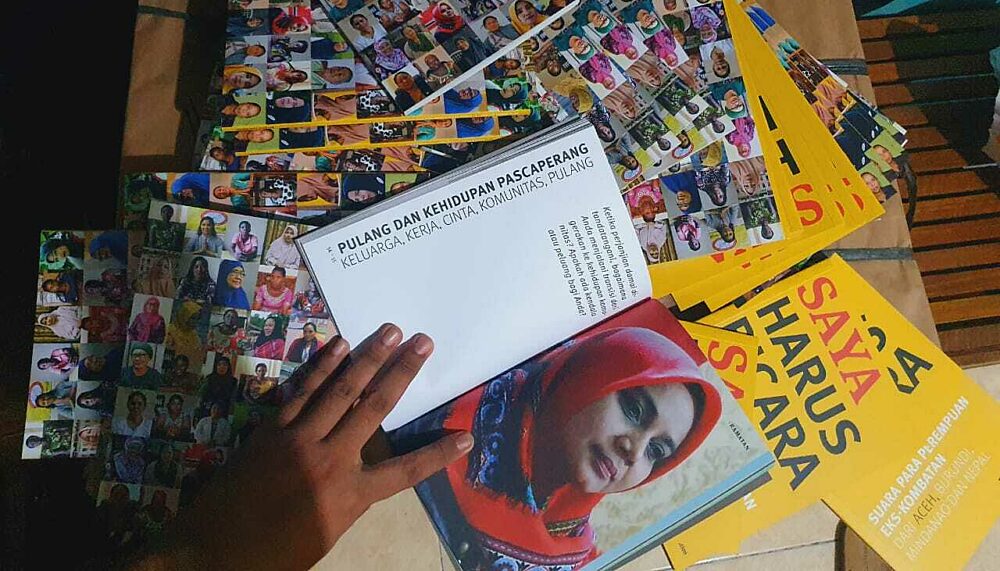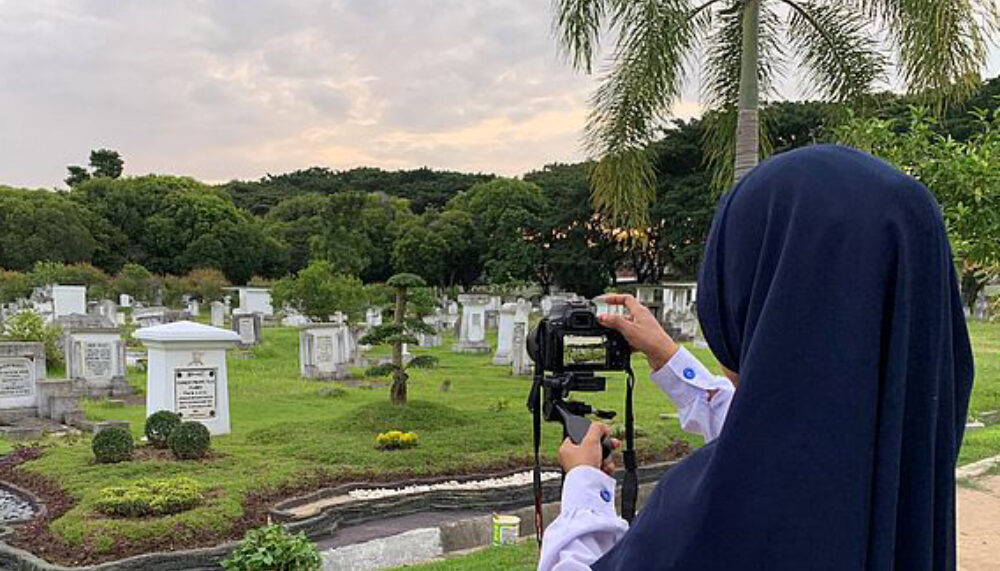FEATURE | 9 May 2022
Women in armed conflict and peace negotiations
Berghof in conversation with the street magazine Karuna Kompass

Peace agreements are measurably more sustainable when women are involved early.
Karuna Kompass: In the current debates in the Bundestag on the Ukraine war, our foreign minister was lectured that now is not the time for a feminist foreign policy. Yet it is always said that the perspective of women is enormously important, especially in peace negotiations. What are your experiences? Does it make a difference if women are involved?
Beatrix Austin: Yes. There are voices in research that say, in the field of peacebuilding and conflict transformation, we know very little definitively, but we do know two things. And one of them is that the early inclusion of women in peace negotiations makes a measurable difference in how sustainable and how long-term those agreements can endure. There are many studies on this. Evidence shows that women's participation in a peace process increases the likelihood of peace lasting two years longer by 20 percent. And the probability that the peace will last 15 years increases to 35 percent. Therefore, it is always an alarm signal for me when only men are seen in pictures of negotiating delegations.
It’s just as important to think of women as fighters as it is to think of women as peacemakers or mediators.
Beatrix Austin
Karuna Kompass: So the stereotype that women are born peacemakers is true?
Beatrix Austin: No, that's not true either. One group that we've been working with more and more over the last six or seven years are former fighters in resistance movements or armed groups from various conflicts, from Burundi to the Philippines to Nepal. The project started with the need to make the different roles of women more visible, because the topic of women and peace is often thought of in a stereotypical way. We have previously worked with former armed groups who ended up laying down their arms and entering political conflict. And these women who are now socially and politically engaged have said over the years that it would be so important for us to have the opportunity to also tell our stories. We want to explain our motivations for the armed struggle, as well as for the transition from the violent struggle for justice to the political and social struggle for justice. And so in doing that, it's just as important to think of women as fighters as it is to think of women as peacemakers or mediators.

Karuna Kompass: This is a topic that, to our knowledge, is rarely widely discussed. There are a number of artworks that deal with it, for example with Kurdish women resistance fighters.
Beatrix Austin: We have published a book on the subject, "I Have To Speak - Voices of Female Ex-Combatants from Aceh, Burundi, Mindanao and Nepal". It started with creating safe spaces for the daughters, nieces, cousins of female ex-combatants. They then went out to conduct filmic biographical interviews with the former women combatants. These young women managed to capture their experience of war, but also their experience of peacemaking. With this material, the activists involved are trying to do further education and peace work in the different countries. This method of involving affected people in the research process is what we call participatory research[1]. This is a very central approach of our research work.
Florian Lüdtke: In addition to the inclusion of women, it is also important to include other actors, such as young people. They are also always missing from the pictures of negotiation tables. That is one of our core messages to various actors and peacemakers: peace needs the voice of all. Inclusion is a very important aspect, from women to youth, as well as marginalised groups in their respective regions.
----
This interview first appeared in Karuna Kompass, a Berlin street newspaper that profiles people "who are using their own creative freedom to make the world a more beautiful and just place." In April, they spoke with Beatrix Austin, research director, and Florian Lüdtke, communications manager at the Berghof Foundation.
The full issue, including a longer interview on Berghof's work and insights into the field of conflict transformation, is available here: https://karuna-kompass.de/ausg...
[1] Participatory (action) research: pools knowledge and improves understanding of how social interactions work while intervening directly and practically. To ensure ownership and inclusivity (inclusion of as many different social groups as possible), the individuals and communities studied become part of the research process. This actively brings about transformation, or change, in conflicts.
Media contact
You can reach the press team at:
+49 (0) 177 7052758
email hidden; JavaScript is required


